Professional Courses
Industry-relevant training in Business, Technology, and Design
Categories
Interactive Games
Fun games to boost memory, math, typing, and English skills
Typing
Memory
Math
English Adventures
Knowledge
Physics Chapter Breakdown for the JEE Advanced Syllabus
Physics Chapter Breakdown for the JEE Advanced Syllabus
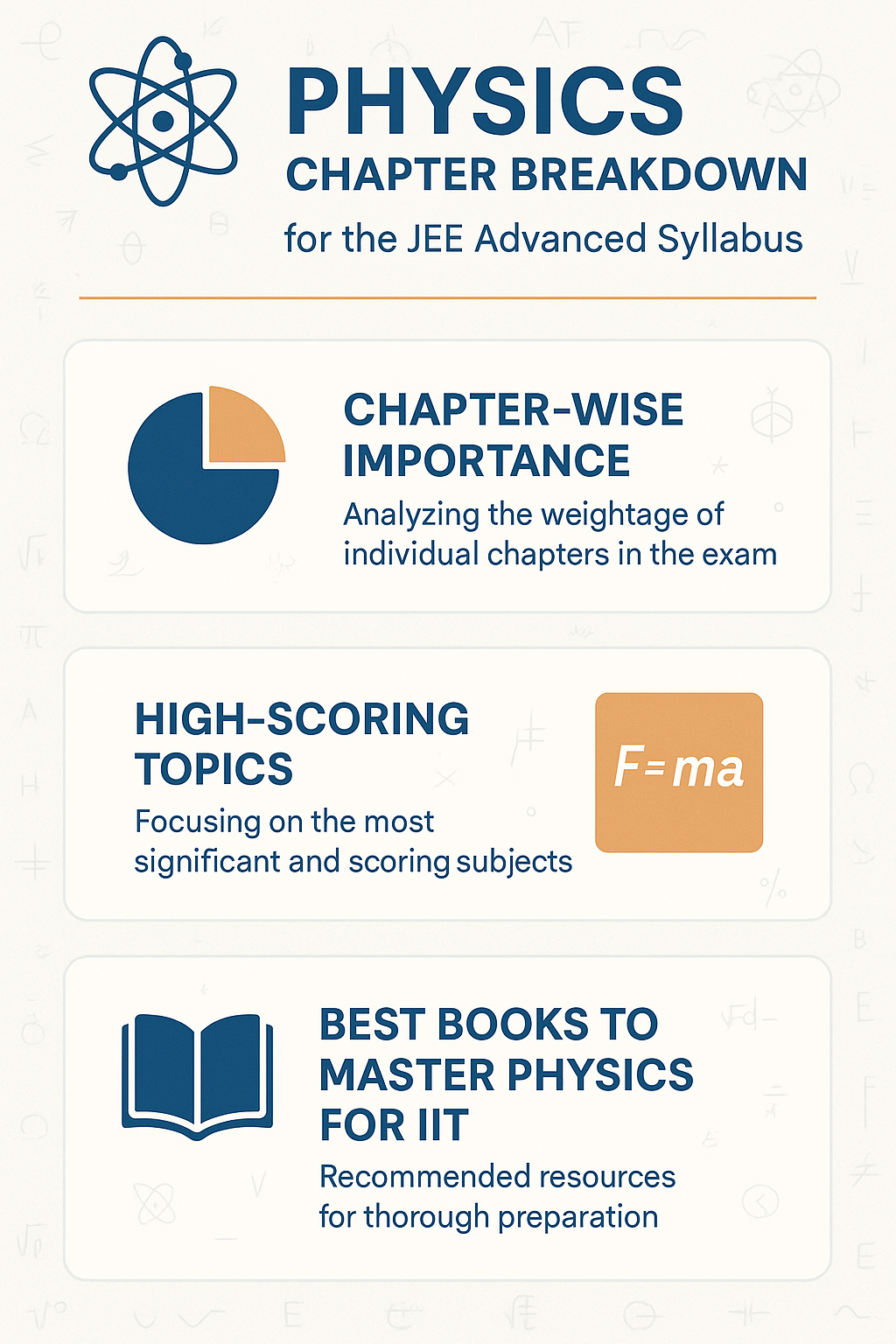
For every IIT aspirant, Physics can feel like both a challenge and an opportunity. It is the subject that tests not just your memory, but also your ability to apply concepts logically. In the JEE Advanced syllabus, Physics holds equal weight with Chemistry and Mathematics, yet many students find it the most unpredictable. Some chapters consistently contribute multiple questions every year, while others appear less frequently. Knowing which chapters matter more helps you focus your time wisely.
In this detailed guide, we’ll break down the Physics portion of the JEE Advanced syllabus, ranking chapters by importance based on previous year analysis. We’ll also recommend the best books to study from and share strategies to master each topic. By the end, you’ll know how to approach Physics in a smart, structured way.
Why Physics Matters in JEE Advanced
Unlike boards, where questions are direct, Physics in JEE Advanced tests your ability to link concepts. A question may combine Mechanics with Calculus, or Electricity with Magnetism. This makes Physics a subject where a strong foundation is essential.
Another reason Physics is so important is that it often determines your rank. Many students are strong in Chemistry or Mathematics but stumble in Physics because of its problem-solving nature. If you can score consistently here, you gain a huge advantage over thousands of aspirants.
The Official Physics Syllabus
The Physics part of the JEE Advanced syllabus includes topics from both Class 11 and Class 12:
- Units and Dimensions, Errors, and Measurement
- Kinematics and Laws of Motion
- Work, Energy, and Power
- Rotational Motion
- Gravitation
- Oscillations and Waves
- Heat and Thermodynamics
- Electrostatics and Current Electricity
- Magnetism and Electromagnetic Induction
- Alternating Current
- Ray and Wave Optics
- Modern Physics and Electronics
Every year, the exam draws from this list. But past papers show that not all chapters are equal in importance.
Chapter-Wise Breakdown Based on Importance
1. Mechanics (Kinematics, Newton’s Laws, Work-Energy, Rotational Motion, Gravitation)
Mechanics is the backbone of JEE Physics. Around 25–30% of the Physics questions in JEE Advanced come from Mechanics. Topics like Projectile Motion, Laws of Motion, Energy Conservation, and Rotational Dynamics appear year after year. Gravitation also regularly contributes at least one question.
Mechanics is considered tricky because it requires both clear concepts and practice. Many students find Rotational Motion especially challenging. But once mastered, Mechanics gives you confidence across other topics too.
Recommended Books:
- Concepts of Physics by H.C. Verma (Vol. 1)
- Problems in General Physics by I.E. Irodov (for advanced practice)
2. Electricity and Magnetism (Electrostatics, Current, Magnetism, EMI, AC)
This is the next most important area. Roughly 25% of Physics questions are from this block. Topics like Coulomb’s Law, Capacitance, Circuits, Magnetic Fields, and Electromagnetic Induction appear frequently. Alternating Current and Transformers also feature regularly.
Questions from this section often require application of formulas in unexpected ways. Students who practice circuit problems and EMI concepts find this area highly scoring.
Recommended Books:
- Fundamentals of Physics by Halliday, Resnick, and Walker
- Coaching institute modules for practice-heavy sections like AC and circuits
3. Optics (Ray and Wave)
Optics contributes 8–10% of Physics marks in JEE Advanced. Ray Optics (lenses, mirrors, prism) gives straightforward questions, while Wave Optics (interference, diffraction, polarization) can be conceptually heavy but scoring.
Many students skip Wave Optics thinking it is less important. But every year, at least two to three questions are asked, making it worth solid preparation.
Recommended Books:
- NCERT Physics (Class 12) for Wave Optics
- H.C. Verma for Ray Optics basics
4. Modern Physics and Electronics
Modern Physics, including Atomic Structure, Nuclear Physics, and Semiconductors, has grown in importance in recent years. It often contributes 5–7% of the Physics paper. The good part is that the questions are usually straightforward if you’ve revised NCERT thoroughly.
Electronics questions, like from logic gates or semiconductors, are also simple scoring opportunities.
Recommended Books:
- NCERT Physics (Class 12)
- Coaching notes for nuclear physics and semiconductors
5. Oscillations and Waves
Oscillations and Waves form the bridge between Mechanics and modern topics. You can expect at least 2–3 questions every year. Topics include SHM, resonance, damped oscillations, wave motion, and sound waves.
Many students confuse SHM with circular motion problems. Practicing variety is key.
Recommended Books:
- H.C. Verma
- Problems in General Physics by Irodov (for resonance-based questions)
6. Heat and Thermodynamics
Thermodynamics is another high-value chapter. It usually contributes 2–3 questions. Questions from heat transfer are rare but not absent. The First and Second Laws of Thermodynamics, Carnot cycle, and entropy are tested regularly.
Students who understand the basics well can score easily here, since many questions are formula-based.
Recommended Books:
- NCERT Physics (Class 11) for thermodynamics basics
- H.C. Verma for detailed problem solving
7. Experimental Physics and Error Analysis
Often ignored by students, experimental physics and error analysis are included in the official JEE Advanced syllabus. Questions may ask you to interpret data from a given experiment, calculate percentage error, or analyse a practical setup.
Though these questions are only 2–3 in number, they are usually simple and should not be missed.
Recommended Books:
- NCERT Physics Lab Manual
- Coaching material for error analysis problems
Ranking Chapters by Priority
Based on past papers, here’s a rough ranking of Physics chapters in terms of importance for JEE Advanced:
- Mechanics (highest weightage)
- Electricity and Magnetism
- Optics
- Modern Physics and Electronics
- Oscillations and Waves
- Heat and Thermodynamics
- Experimental Physics / Error Analysis
This ranking doesn’t mean you should skip smaller topics, but it helps in prioritising your study plan. If time is short, focus first on Mechanics and E&M, then strengthen Optics and Modern Physics.
How to Balance Physics with Other Subjects
Physics can consume a lot of time because of its problem-solving nature. The best strategy is to integrate it with your daily timetable rather than isolating it. Spend mornings on theory-heavy topics like Mechanics, and evenings on problem practice.
If you’re in Class 11 or Class 12, align Physics preparation with your school schedule so board and JEE topics overlap. If you’re younger, say in Class 9 or Class 10 then focus on NCERT and conceptual clarity first. Platforms like AllRounder.ai can help you build these basics early.
Recommended Preparation Strategy
- Start with NCERT and HC Verma to build core concepts.
- Move to advanced problem books like Irodov only after you’re comfortable with the basics.
- Practice past JEE Advanced papers as these reveal how chapters are weighted each year.
- Take mock tests in the exact exam pattern to build speed and accuracy.
- Revise formulas regularly. Physics often comes down to applying the right formula at the right time.
Final Thoughts
Physics in the JEE Advanced syllabus is vast, but it doesn’t have to be overwhelming. By breaking it down chapter by chapter, you can see clearly where to focus your energy. Mechanics and Electricity & Magnetism carry the most weight, but chapters like Optics, Modern Physics, and Thermodynamics also offer reliable scoring opportunities.
Start with basics, practice consistently, and use the right books. Above all, don’t neglect smaller areas like experimental physics as they can give you easy marks. With a balanced approach and the right resources, Physics can become your strongest subject in JEE Advanced.
Platforms like AllRounder.ai make preparation smoother by reinforcing school learning and building problem-solving skills step by step. Whether you’re just beginning in Class 9 or in the thick of preparation in Class 12, a structured plan will help you master Physics and move closer to your IIT dream.

Explore the JEE Advanced Result Archive with past years’ data, insights on students appeared vs qualified, cut-off...

Got your JEE Advanced result? Here’s the complete step-by-step guide to the JoSAA counselling process from...
.jpg?width=500)
How many seats in JEE Advanced? Explore IIT seat distribution across all branches like CSE, Mechanical, Aerospace,...
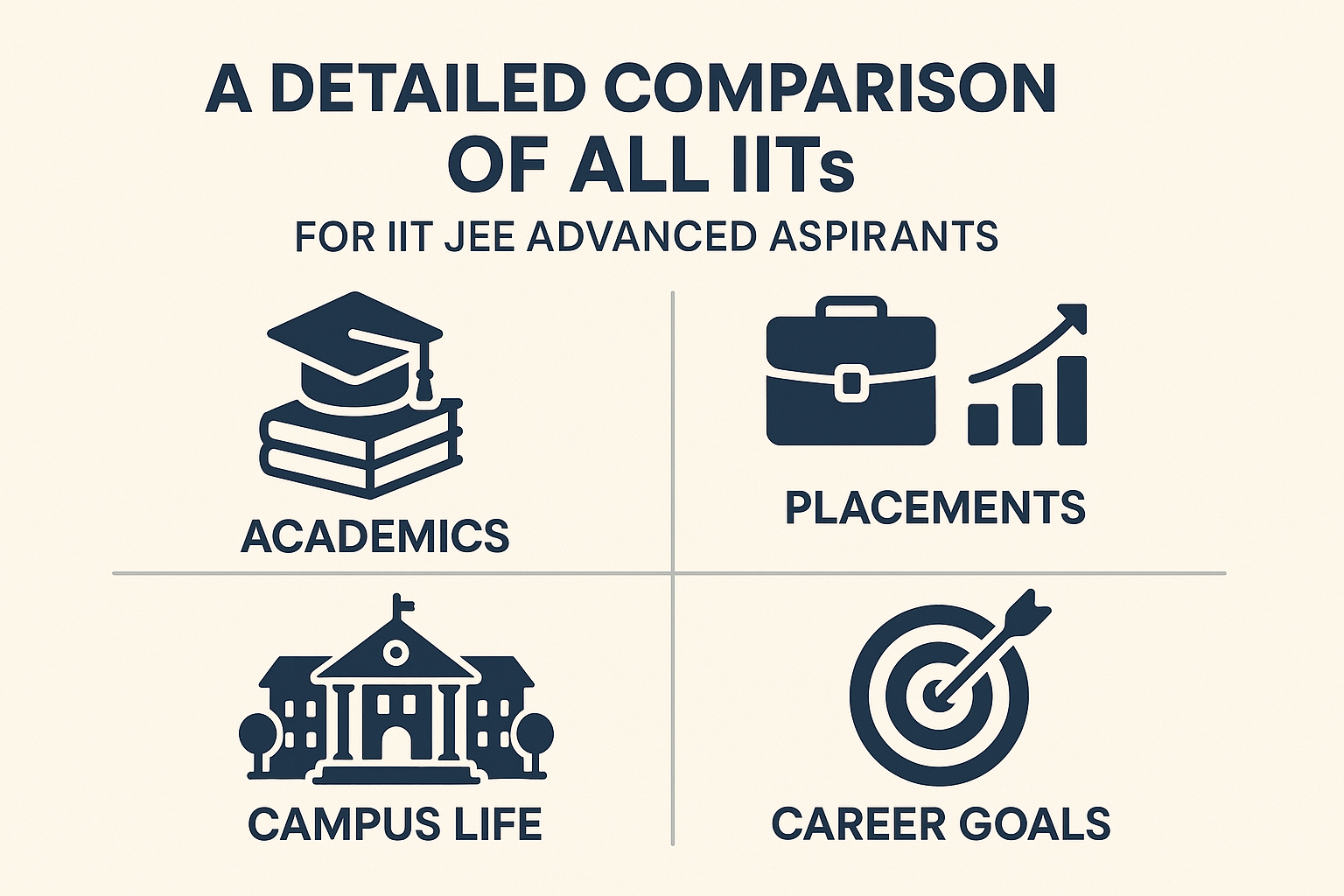
Compare all IITs for JEE Advanced aspirants. Learn about academics, placements, campus life, and find which IIT is...
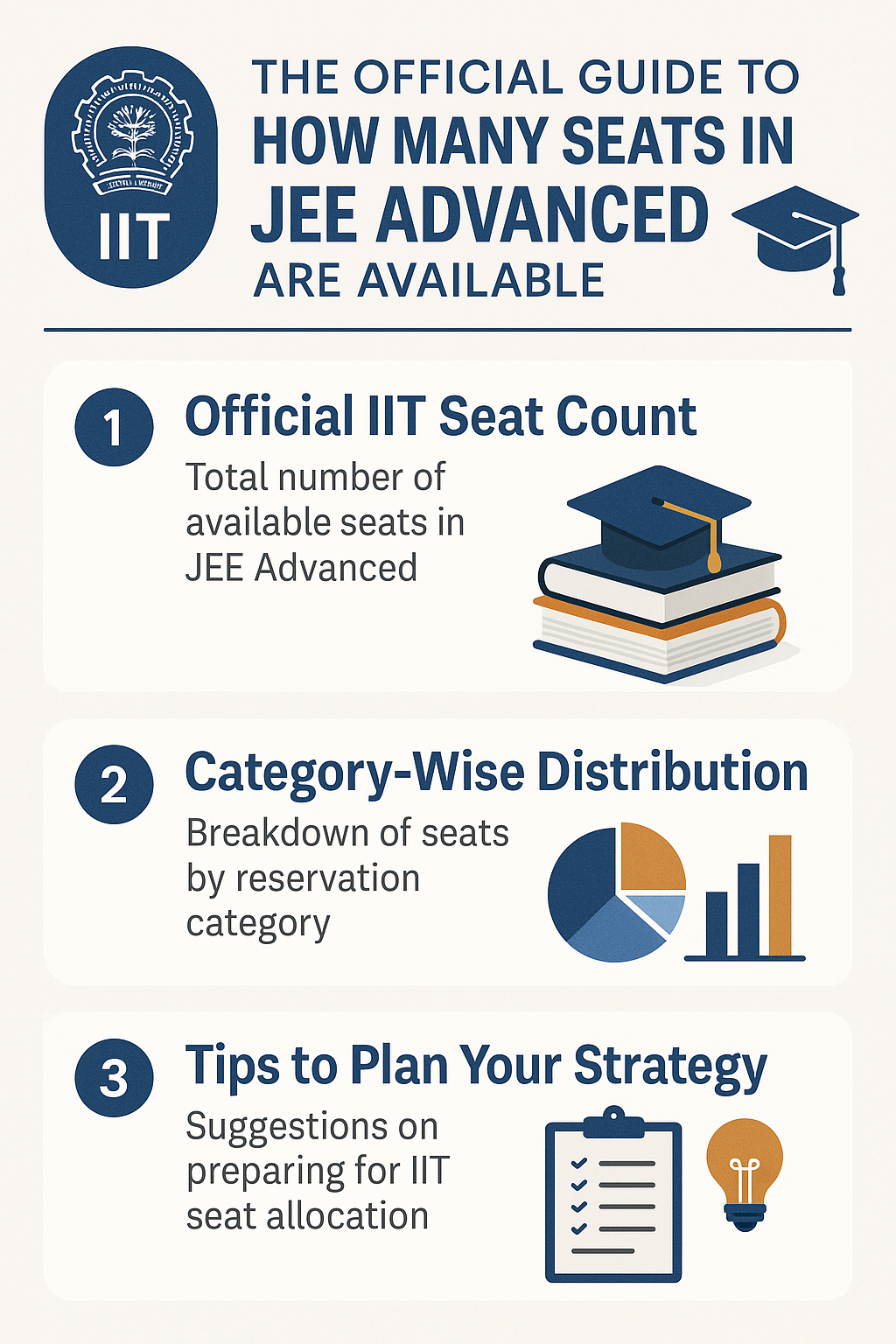
Wondering how many seats in JEE Advanced are available? Get the official IIT seat count, category-wise distribution,...
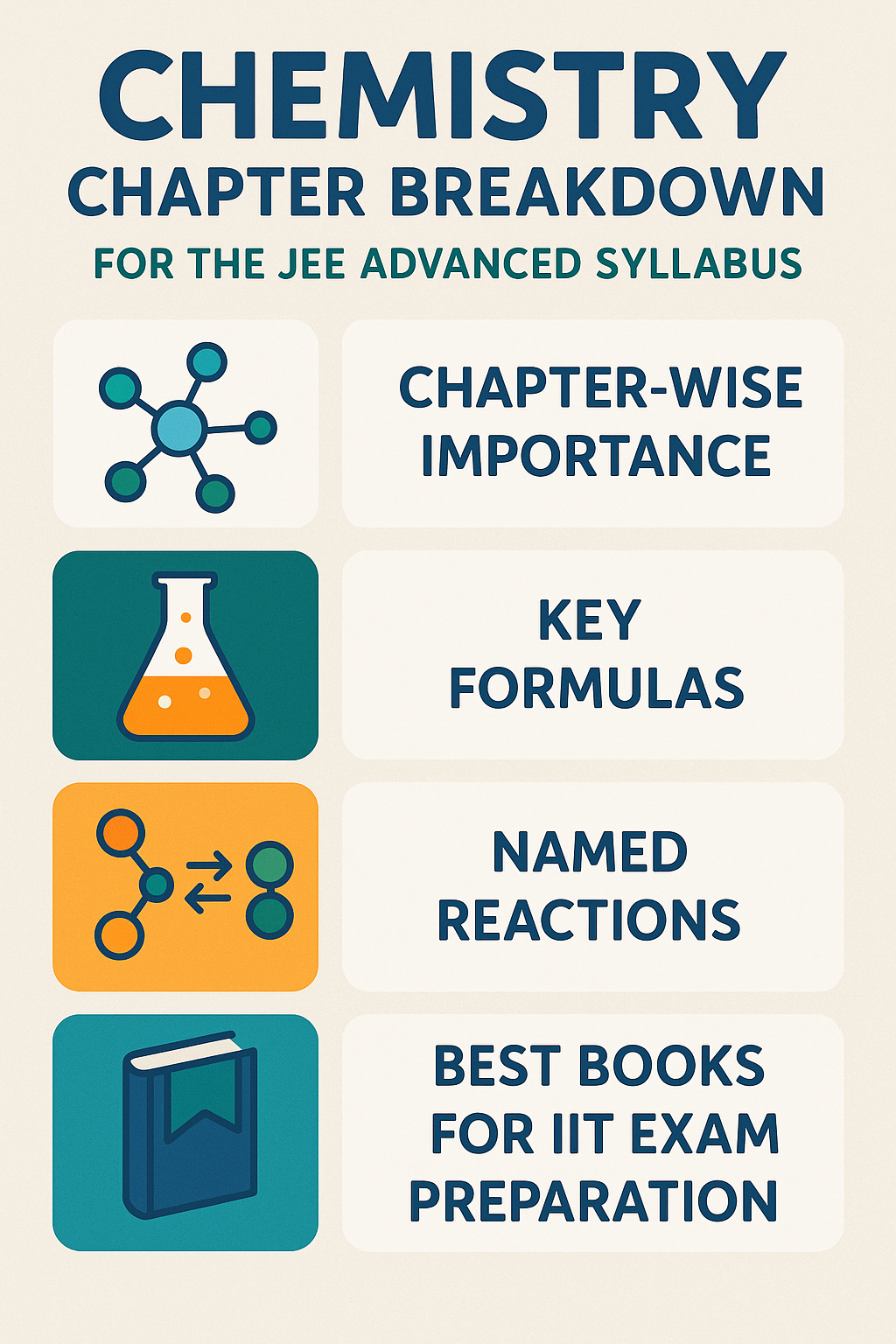
Explore the Chemistry JEE Advanced syllabus with chapter-wise importance, key formulas, named reactions, and the...
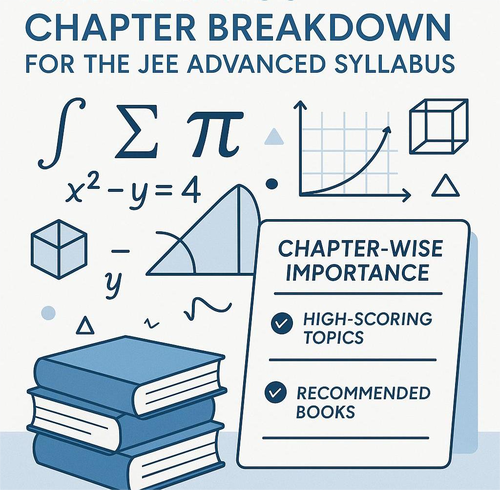
Explore the Maths JEE Advanced syllabus with chapter-wise importance, high-scoring topics, and the best books to...

Explore the Physics portion of the JEE Advanced syllabus. Get chapter-wise importance, high-scoring topics, and the...
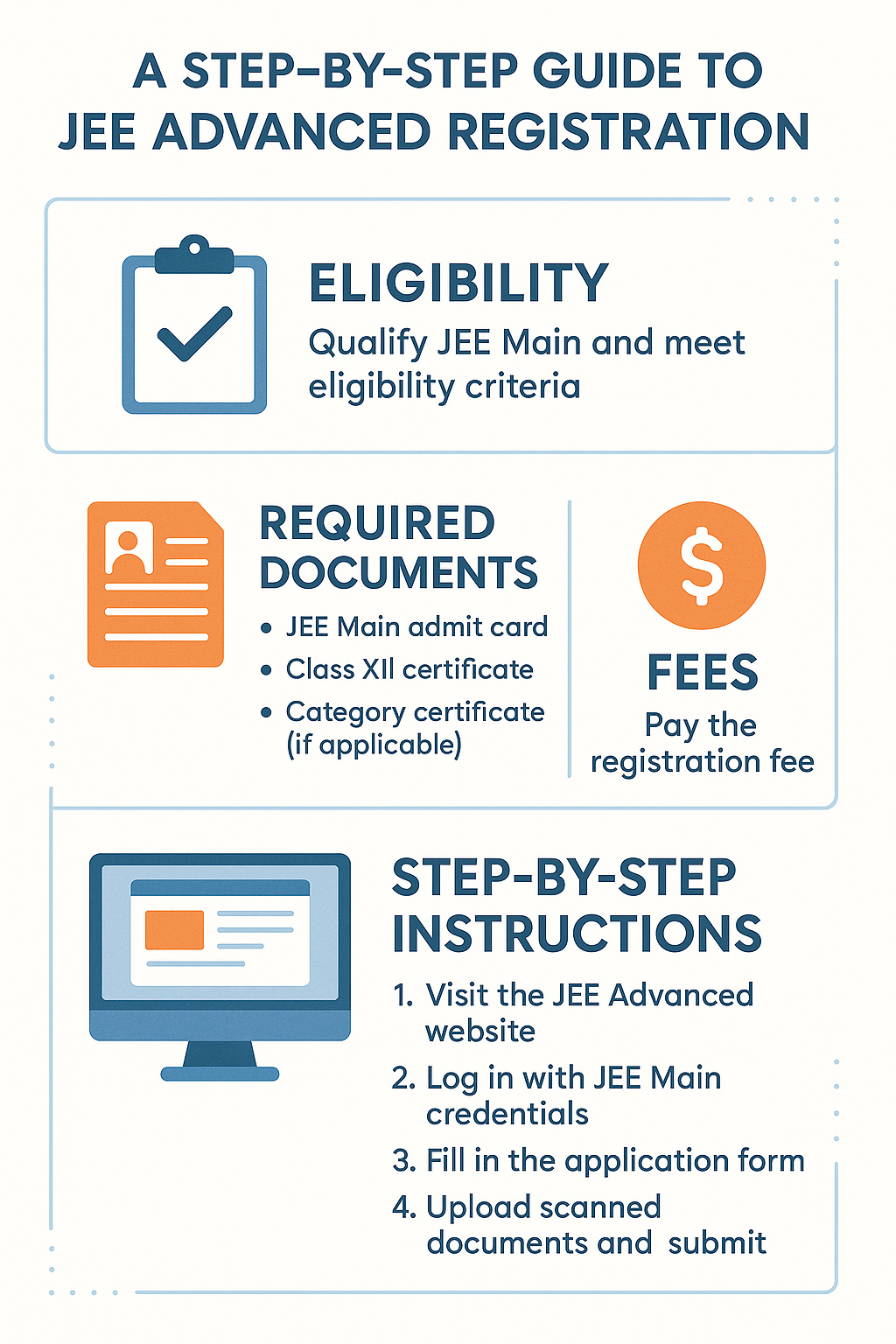
Learn the complete JEE Advanced registration process. Check eligibility, required documents, fees, and step-by-step...
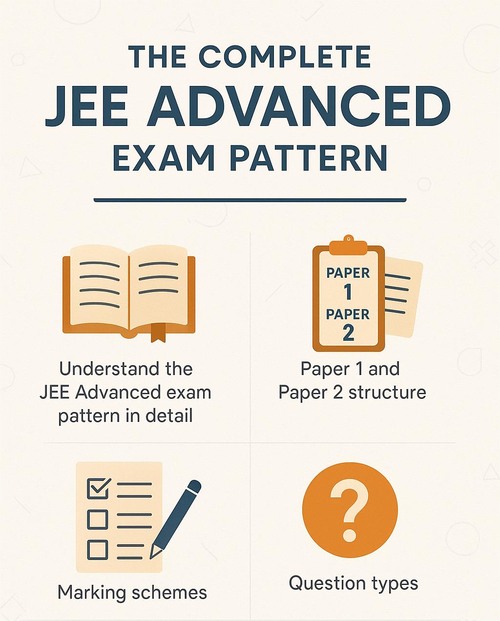
Understand the JEE Advanced exam pattern in detail. Learn about Paper 1 and Paper 2 structure, marking schemes,...

Find out the minimum percentile required for JEE Advanced eligibility. Learn category-wise cutoff trends, rules, and...

Wondering how many attempts are allowed for JEE Advanced? Learn the official rules, eligibility criteria, and...
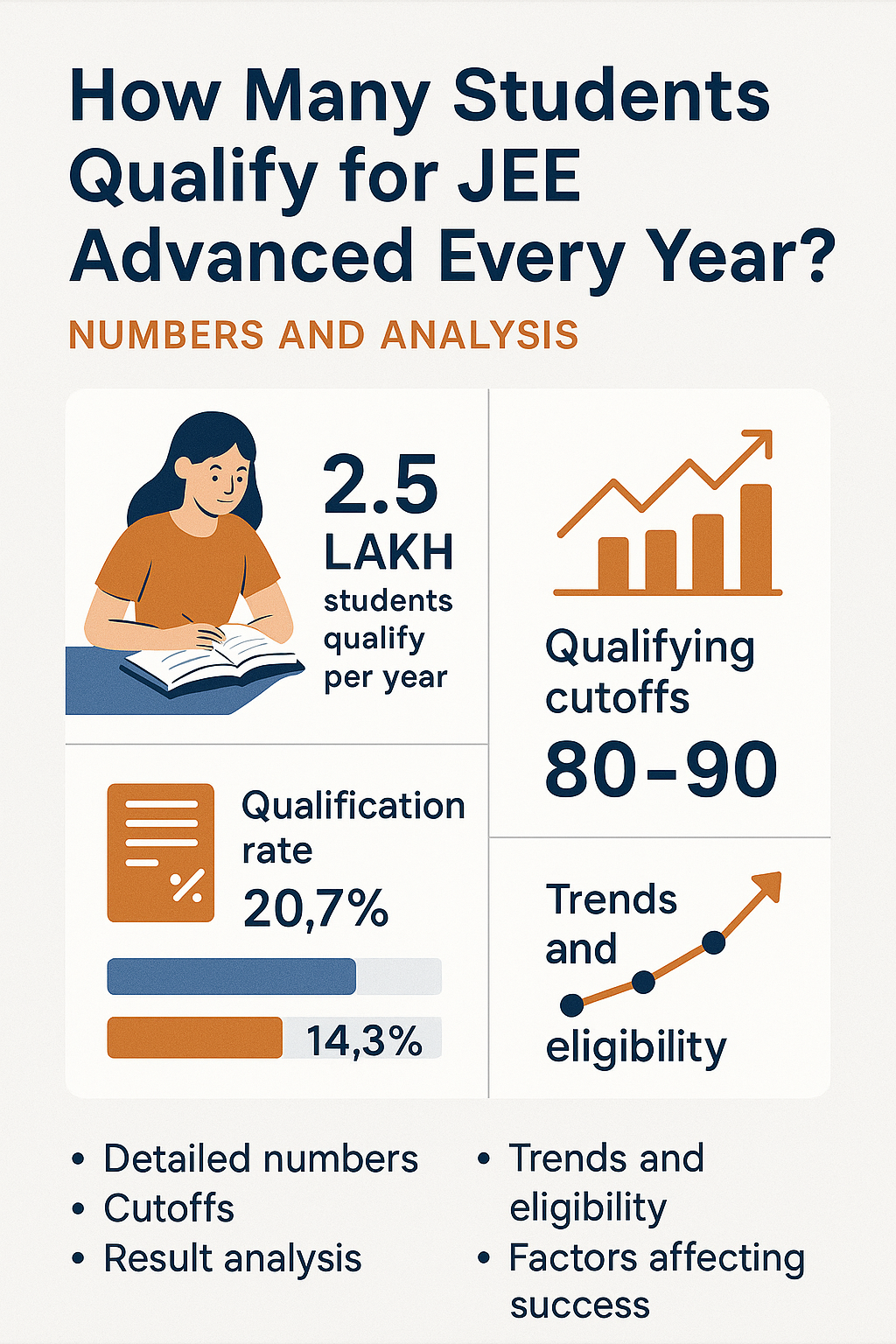
Discover how many students qualify for JEE Advanced every year with detailed numbers, cutoffs, and result analysis....

Stay updated with the latest JEE Advanced news. Get details on exam dates, registration process, results, and...
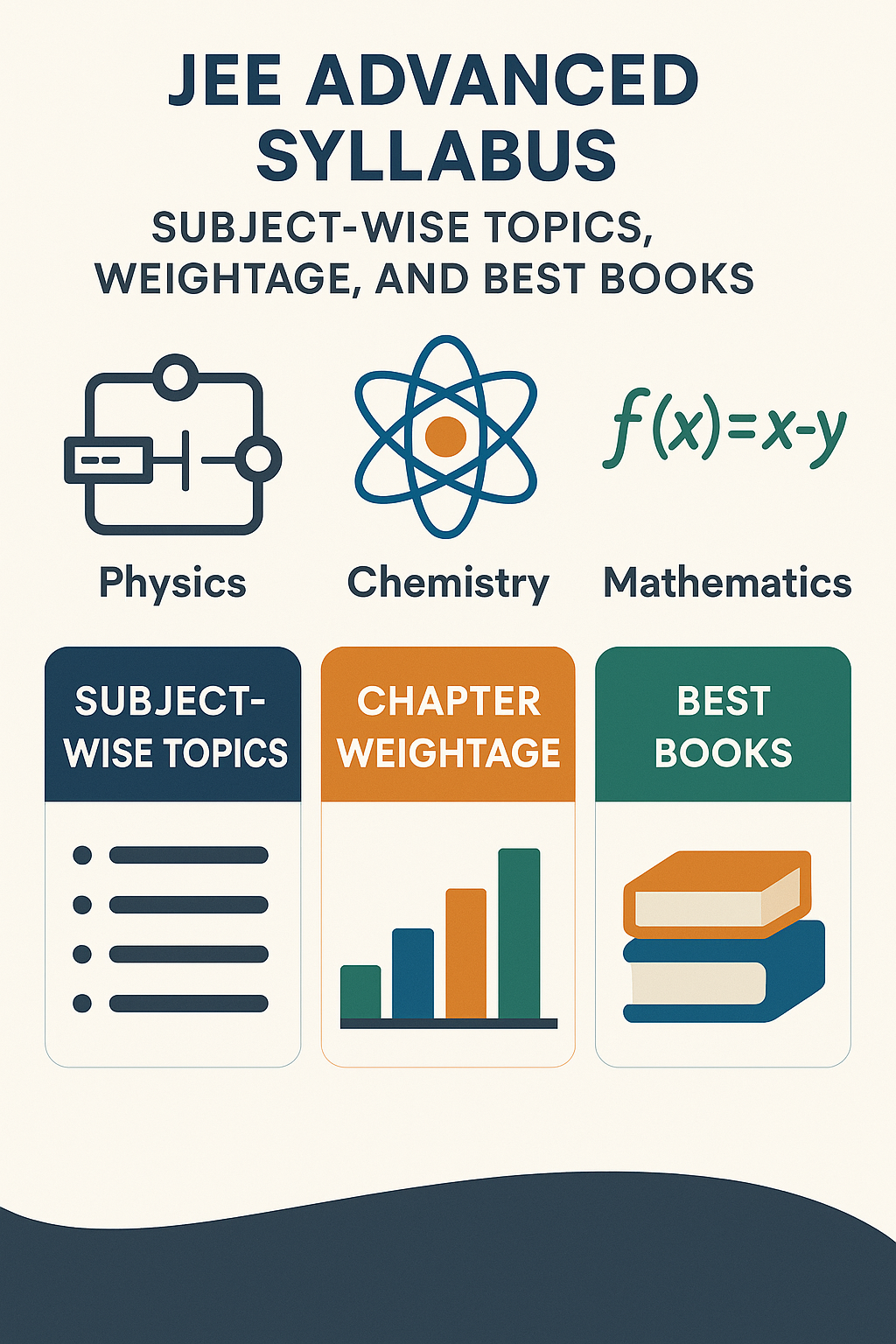
Explore the complete JEE Advanced syllabus with subject-wise topics, chapter weightage, and best books for Physics,...
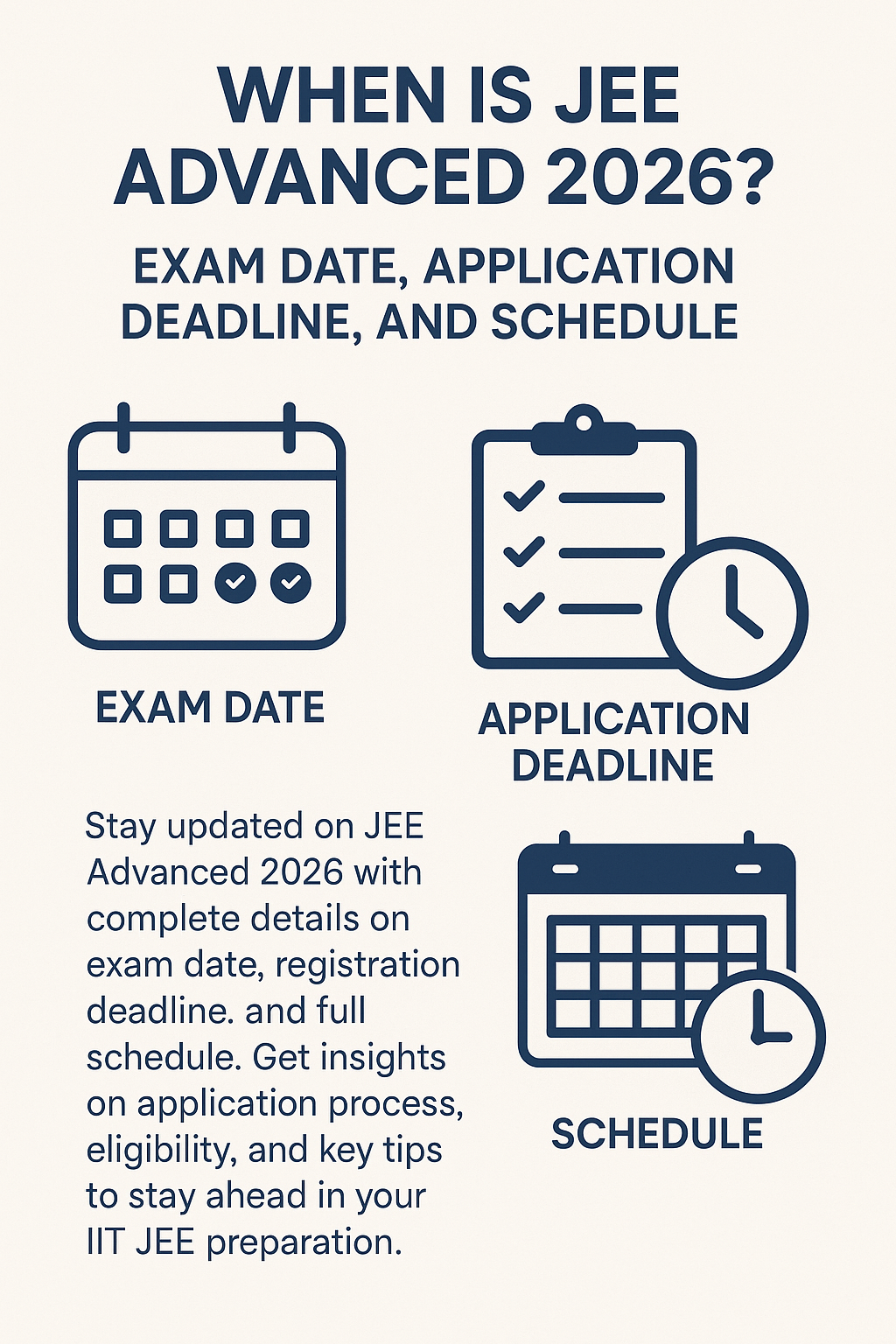
Stay updated on JEE Advanced 2026 with complete details on exam date, registration deadline, and full schedule. Get...
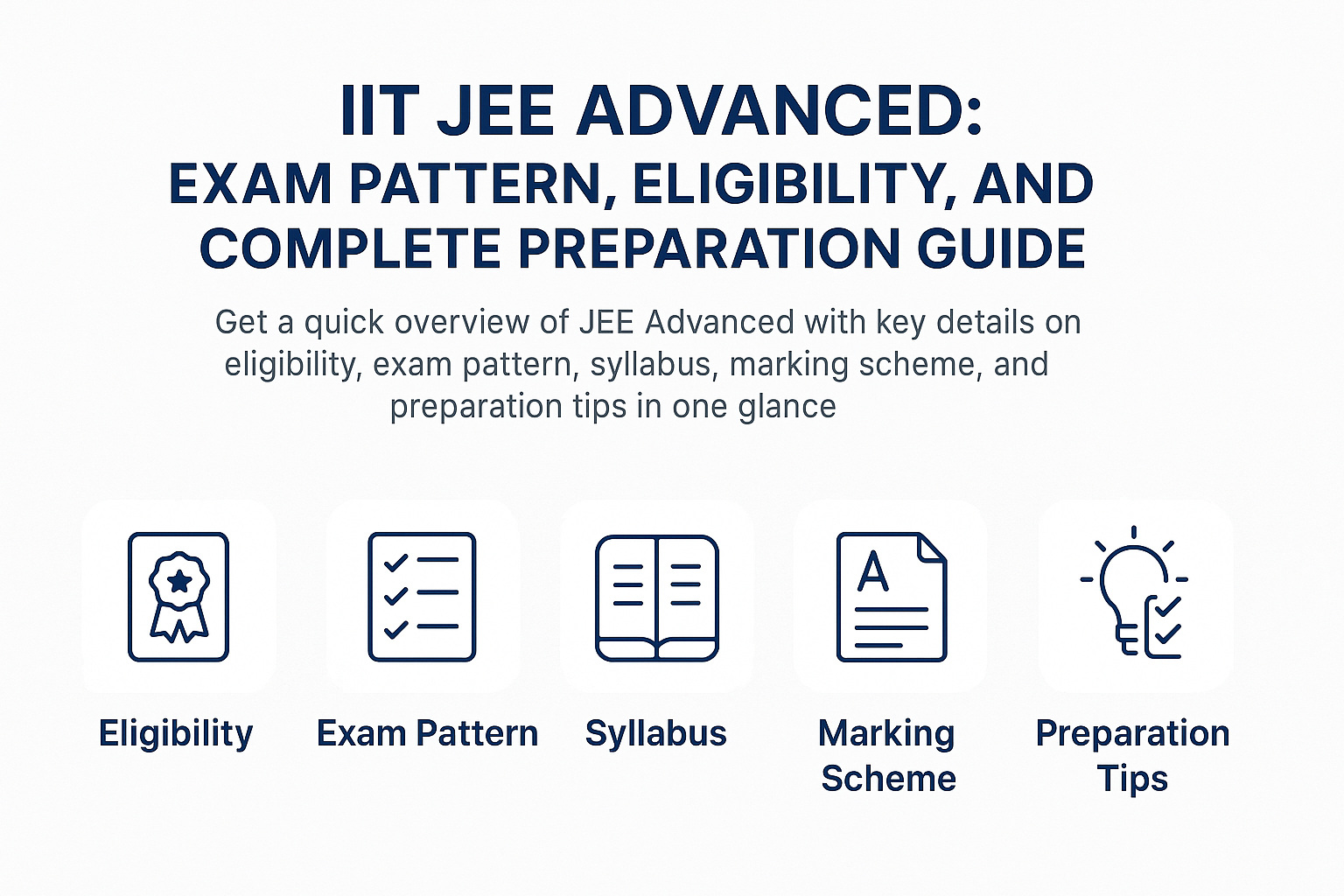
Get a quick overview of JEE Advanced with key details on eligibility, exam pattern, syllabus, marking scheme, and...

Curious about JEE Advanced marks vs rank? Explore expected cutoffs, past year trends, and how your score translates...
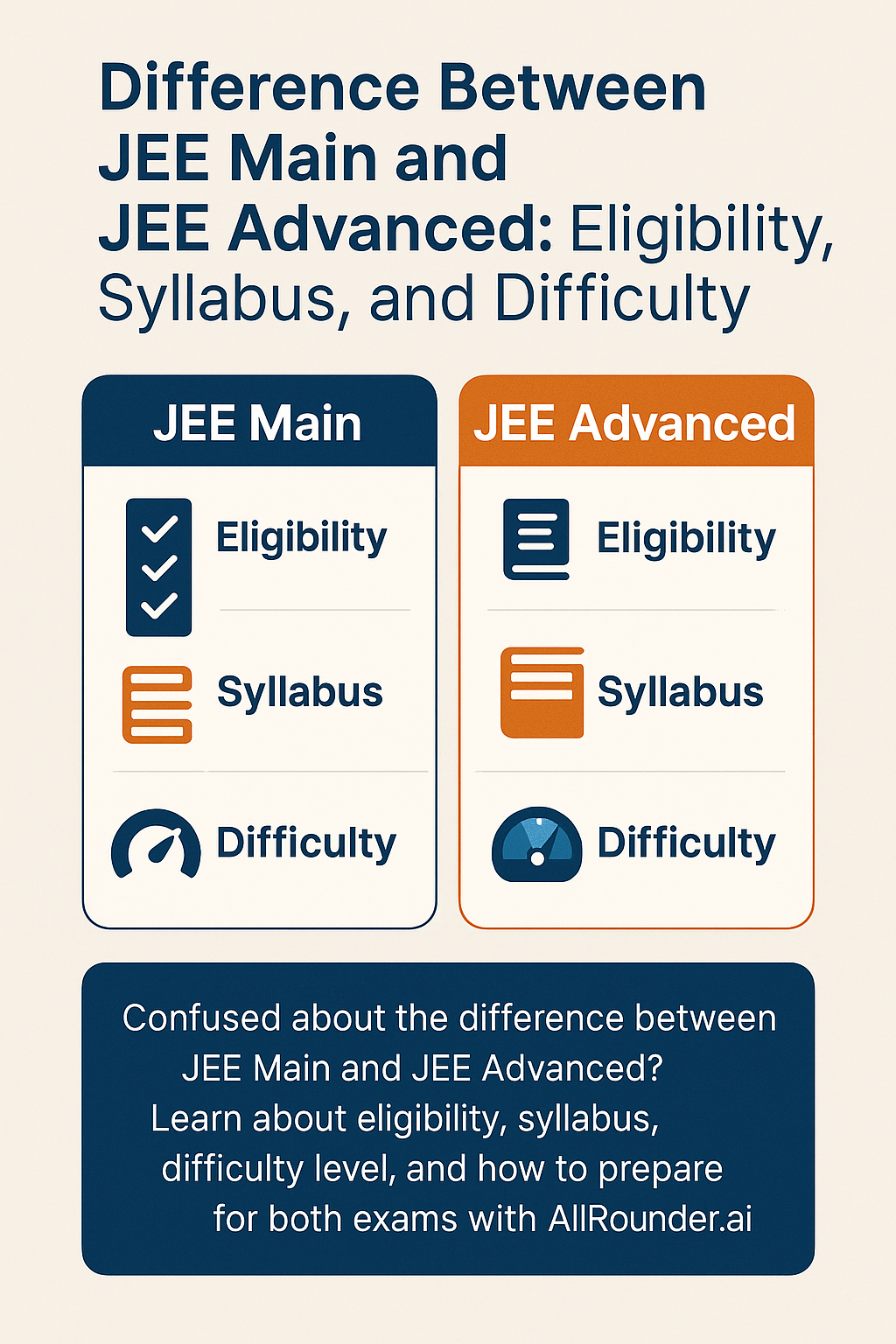
Confused about the difference between JEE Main and JEE Advanced? Learn about eligibility, syllabus, difficulty...
Resources
-
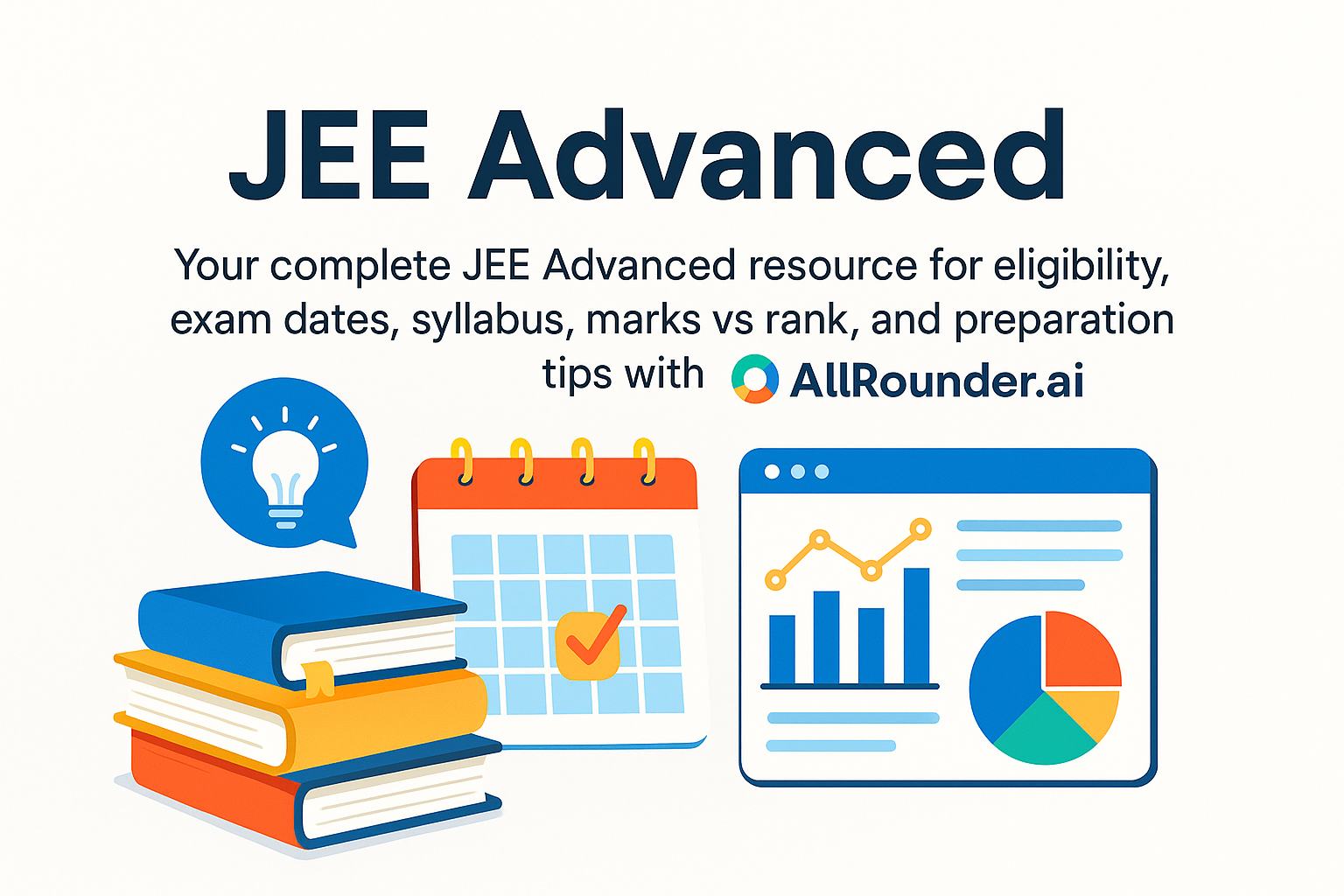
Your complete JEE Advanced resource for eligibility, exam dates, syllabus, marks vs rank, and...
-
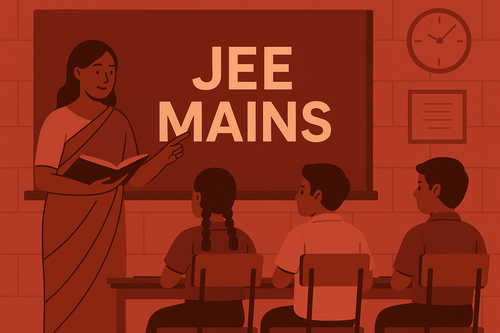
Understand the entire JEE Main process, from application and eligibility rules to the exam...
-

Explore the IB Board – a global curriculum emphasizing holistic, student-centered learning...
-

Learn about CBSE – India’s national school board offering a standardized curriculum, NCERT...
-

Explore everything about the ICSE board – its curriculum, subjects, exam format, and academic...

